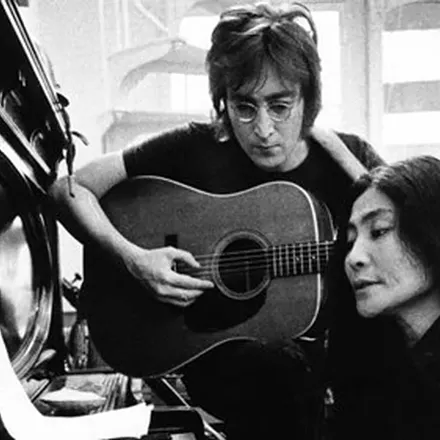The Case Against Focusing on Movie Plots
Spoiler culture and how the focus on "what happens" kills film appreciation
By Scott Renshaw @scottrenshawIf you follow movie opinions in social media—and more power to you if you're wise enough to do otherwise—you might have caught some discourse on the current hit film Oppenheimer addressing its sex scenes. Specifically, some folks online asserted that the sex scenes weren't "necessary," or didn't "advance the plot." And if you care at all about the art of filmmaking, the only possible response to these comments would go something along the lines of, "Oh noooooooo."
This will not be a rant about Puritan attitudes surrounding cinematic sexuality, although there are entire books to be written about that subject. Instead, I'm concerned about this as a microcosm of a bigger problem, one that is absolutely murdering the ability to talk thoughtfully about narrative art forms like movies, television, theater and books: the way anything with a story has been reduced to a level of "what happens."
If there's any place where this idea manifests most prominently, it's in the obsession with "spoilers" regarding any new piece of narrative storytelling. People like me who write about new releases often dodge talking about certain revelations as a matter of courtesy, but I've started to wonder if doing so is contributing to an infantilization of critical thinking. Every time we emphasize the fact that we're not going to talk about certain things, we inevitably emphasize their role in the overall experience. It's a cult of the "what happens," at the expense of the how it happens.
This notion was at the forefront of my mind recently when I watched for the first time the classic 1949 film noir The Third Man. By virtue of being immersed in the world of film, I was aware that certain plot developments were coming, in the same way that even someone who has never seen The Crying Game or The Empire Strikes Back or The Sixth Sense has probably absorbed from popular culture their respective third-act bombshells. Yet it never once occurred to me that I shouldn't watch The Third Man simply because I was already aware of some of the secrets of Harry Lime. There were so many other filmmaking elements to experience—performances, bits of dialogue, cinematography—besides those that could be contained in a Wikipedia plot summary. The movie was much more than that.
Yet we've become obsessed—perhaps even more so in the era of eternal serialized storytelling like the Marvel Cinematic Universe—with the essence of a movie being the "what happens" part. This damages aesthetic appreciation for a lot of reasons, but nowhere more clearly than with regard to movies and other stories where the artist is up to something more complicated than telling a simple story, as is the case with filmmakers like David Lynch. I studied literary criticism before getting into film, and there has always been a popular stigma around experimental works like James Joyce's Ulysses, which while it certainly included components of a narrative—it is, in the most rudimentary sense, a novel about what happens to one man over the course of one day—did so in unusual ways. Does it "advance the plot" that Joyce spends an entire chapter of Ulysses describing events in the question-and-answer format of a catechism? Not remotely. It is, however, a fascinating creative choice with thematic significance, just like the stream-of-consciousness chapter that closes the book from the point of view of protagonist Leopold Bloom's wife, Molly. Reading that chapter is an amazing experience for someone who loves literature, one that would be insanely oversimplified if you first encountered the book after having someone tell you, "Spoiler alert: Molly Bloom has an orgasm."
If you're interpreting all this as a blanket endorsement of letting loose with every possible plot revelation, you're missing the point. On any number of occasions, a narrative's impact on me has been amplified by lack of foreknowledge, and a sense of discovery. But the balance has been tipped too heavily in the direction of emphasizing plot—whether that means people behaving as though a story has been ruined by knowing something in advance, or by resisting aesthetic choices that are there simply to be aesthetic choices.
We can have a discussion about whether any given element of a movie, including a sex scene, works in the way the filmmakers intended. What we can't do is turn the discussion into one where that element is judged exclusively on its merits as a plot-driving mechanism. There's a whole world of art to experience beyond synopsis—and it's a world that can't be spoiled.
More by Scott Renshaw
-
Film review: THE ACCOUNTANT 2
Follow-up to the 2016 Ben Affleck action drama embraces the weird, for better or worse.
- Apr 23, 2025
-
Comedian Steve Hofstetter interview
On his comedy origins, dealing with hecklers, and how a Utah appearance helped define his on-stage sensibility
- Apr 23, 2025
-
Film Reviews: New Releases for April 18
Sinners, The Wedding Banquet, Sneaks, The Ugly Stepsister, One to One: John & Yoko
- Apr 17, 2025
- More »
Latest in Film Reviews
Readers also liked…
-
Sundance 2025 wrap-up plus February special screenings
Uncertainty about the future location shifts focus away from the movies
- Feb 5, 2025









